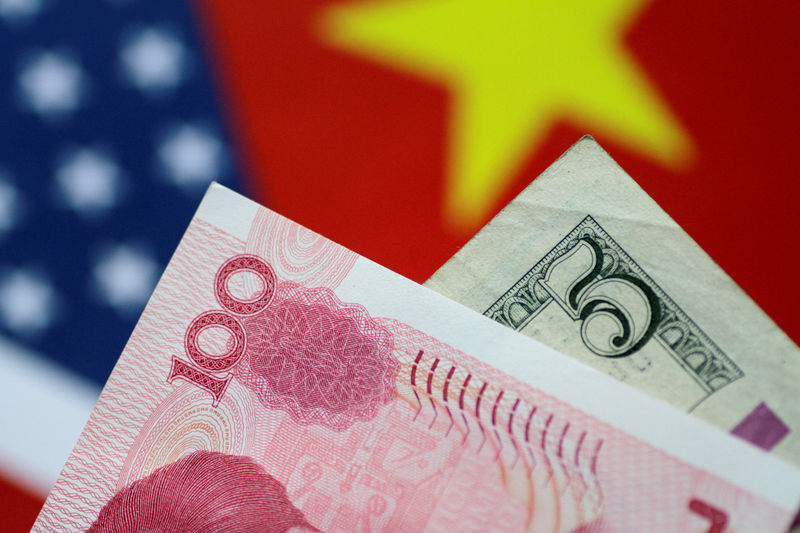By Stanley White
MANILA (Reuters) - The United States will argue for higher lending rates and weaning some countries off development lending at an Asian Development Bank meeting this weekend, a U.S. Treasury official said on Friday.
The proposed changes at the ADB's annual meeting are similar to reforms the United States argued for at the World Bank last month that led to an increase in lending rates for developing countries with higher incomes.
The administration of U.S. President Donald Trump had chided the World Bank's lending to higher-income countries such as China, saying they should "graduate" to non-concessional loans.
"Some of the reform priorities that we pursued at the World Bank a few weeks ago are also things that we are prioritizing in the strategy discussion here," a senior U.S. Treasury official told reporters on the sidelines of the ADB meeting in Manila, the Philippine capital.
"Among those is a commitment to improving and developing a differentiated pricing strategy that encourages countries to seek financing from markets, rather than the bank, when those alternatives exist," said the official, who spoke on condition of anonymity.
He did not specifically name China, but said countries now have better access to capital markets and the ADB should wean them off its development loans. Washington also preferred that taxpayer money go to the poorest countries, the official added.
The ADB, a Manila-based development lender whose major donors are Japan and the United States, finds itself at a crossroads as its members gather to debate a new strategy to run until 2030.
Founded in 1966 with a mandate to lift hundreds of millions of Asians out of poverty, the ADB has 67 member countries ranging from struggling Bangladesh and Pakistan to booming China and India.
China is trying to assert itself on the global development lending stage with its "One Belt, One Road" infrastructure initiative, and the creation of a new development lender called the Asian Infrastructure Investment Bank (AIIB).
U.S. Treasury officials had complained at a World Bank meeting last month that the bank was lending too much to China and other bigger emerging markets.
The bank agreed to reforms that will raise borrowing costs for higher-middle-income countries, including China.
"China is forecast by IHS Markit to become a high-income country before 2023 under the World Bank per capita income thresholds, signaling that World Bank and ADB lending to China would inevitably be scaled back," said Rajiv Biswas, Asia Pacific chief economist for IHS Markit.
"It is likely that China would also seek to play a greater role...providing development financing for developing countries, rather than as a recipient of development assistance."
China's new programs could become serious rivals to the ADB and the World Bank, some economists say. China's moves to expand its international influence also come amid heightened trade policy tension with the United States.
ADB President Takehiko Nakao, however, has played down the threat of competition between the ADB and AIIB, instead emphasizing ways the two can cooperate.
